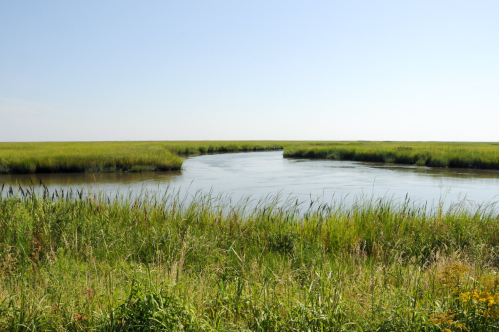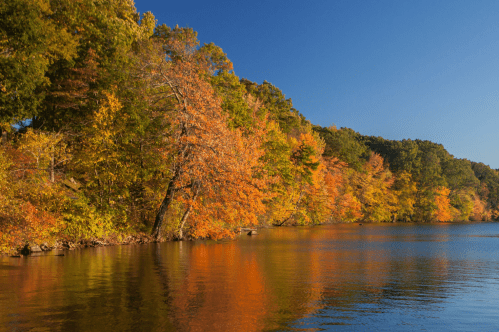Growing up on a Kentucky farm in the 70s and 80s was a really beautiful experience for me, though it was a lot of hard work. The farm is a special place where natural food can be plentiful and the rewards of a hard day's work are fresh food aplenty on the table and hot water to wash with. It was the same in the early 1900s, though farmers didn’t have the conveniences that we do now. Farmers were familiar with the land they worked, and the animals that worked with them. Everything was done in patterns by season, working from dusk till dawn. All that life and love that goes into a farm tends to make it a special place, rich in both soil and memories.
Here are 18 eye-opening photos of Kentucky farms from the past:
18. Farmer loading liquid feed.
This was a liquid feed station in Owensboro where local farmers came to pick up liquid feed. I’m not sure exactly what that was, as my parents never used it to my knowledge.
17. Burley tobacco, 1940.
Farm hands work to remove Burley tobacco from the field before nightfall.
16. Farmers exchange news in town.
Farmers use to meet in Versailles by the courthouse or at country stores to exchange news, and make deals outside the trade meets.
15. Farmer's market, 1940.
Farmers come to Campton to trade horses and mules to work in the fields.
14. J & B Stables, Shelby Co 1940.
A horse enthusiast sits outside of a stable in anticipation of a horse show at the Shelby County Fair.
13. Farmers on court day.
These farmers left the fields to show up for court day in Campton. This is how they ensured a fair wage for their goods and field hands.
12. Harvesting potatoes.
These farm workers in Jefferson County were working to harvest the potato crop. This was hard work in the hot sun from dusk till dawn. I’ve harvested potatoes before and though it's hard, it is rewarding.
11. Horse show preparations in Shelby Co.
Farm workers are getting the horses ready to perform in front of the Shelby County Fair crowds.
10. Farm wife carrying trade.
A farmer’s wife is returning home after taking vegetables and fruits to town to trade for other commodities in Breathitt. This was how they survived, via trade and sales.
9. Lexington tobacco farm, 1940.
This is a fine example of a nice looking tobacco farm from 1940.
8. Old school barbecue.
This farm hand fixes up a batch of barbecue lamb and beef for a benefit at the local church, St. Thomas, near Bardstown.
7. Russellville Blacksmith at work.
This is the local blacksmith as he was working on shoeing a cooperative horse. Shoeing is hard work, as it has to be done right or the horse can become lame. This man had an important job in the community.
6. Old slave shack turned milk house.
This was an old slave shack that the farmer re-purposed into a milk house in Bardstown.
5. Threshing wheat.
A farmer and boy work together to thresh the wheat crop and put it into bags for use and sale. Those old burlap bags held a lot of wheat for flour.
4. Tobacco drying near Jackson.
Tobacco was dried in the barn, the house, the porch or wherever farmers had a place to safely dry their product in the 1930s and 1940s.
3. Traveling Itinerant repair man.
This repair man and his family traveled around to different farms to work. This image is from their campsite near Lawrenceburg where they were preparing to approach local farmers.
If You Only Have One Day to Visit This Small Town in Maine, Here’s Everything You Absolutely Can’t Miss

If You Only Have One Day to Visit This Small Town in Massachusetts, Here’s Everything You Absolutely Can’t Miss

If You Only Have One Day to Visit This Small Town in Maryland, Here’s Everything You Absolutely Can’t Miss

2. Wheat thresher.
Farmers work with machines to thresh the wheat on an Oldham County farm. Previously this was done manually with hand held tools.
1. Workers cut burley tobacco.
Workers cut and attach burley tobacco to sticks in Lexington so it can be hung up to properly dry in the barn.
Each one of these pictures depicts an aspect of Kentucky farm life as it was in the 1930s and 1940s. This was the time frame when my own parents were children, and my Dad lived on a farm. They did not have all the "make farming easier" machinery that we do nowadays, and instead, did much of the work by hand or mule and plow. I still remember my Papaw’s mules, and my Dad actually has their harness set. Farming was a hard life with not a lot of rewards if the season was dry, but they symbolize a powerful part of our history. Farms are a deeply special place, as they are where life begins and ends for many a fruit, vegetable, animal and human. Do you have any memories from farm life, now or ancestrally?
Subscribe to our newsletter
Get the latest updates and news
Thank you for subscribing!






























